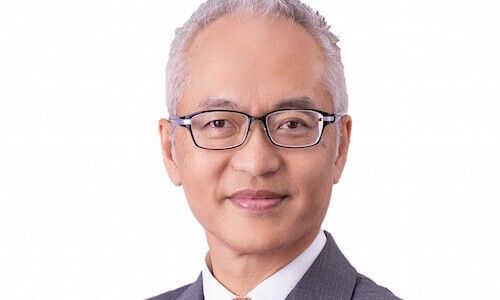HKMA Deputy: «Some People Say WMC 2.0 is Not Good Enough»
The Hong Kong Monetary Authority's deputy chief admitted that some say that the upgraded «Wealth Management Connect» scheme is still «not good enough». He called for patience and flagged the potential for further improvements.
In January, Hong Kong regulators unveiled the second version of the cross-border «Wealth Management Connect» (WMC) scheme within the Greater Bay Area (GBA), a southern Chinese cluster that consists of Hong Kong, Macau and nine mainland cities. The updated scheme includes an increased investment quota and expanded product scope but some industry participants – including UBS’s Amy Lo – have said there is more to be desired.
«Some people still say that [WMC 2.0] is not good enough,» admitted Hong Kong Monetary Authority’s deputy chief Howard Lee during a keynote chat at the «Endowus Investment Summit».
«Gradual» Upgrades
The WMC scheme allows GBA residents to invest in wealth management products distributed by banks in each other's markets. According to Lee, patience is warranted as regulators gauge demand as well as operational effectiveness before potentially introducing more upgrades.
«This is 2.0. There could be 3.0, there could be 4.0,» he said. «The important thing is, like a lot of policies in the mainland, we want to do it on a gradual basis, in an incremental basis as well. So, when the demand is there, when things are operating smoothly, we certainly will continue to [work] with mainland authorities to open up more opportunities both for the investor as well as for asset management companies.»
GBA Opportunity
The GBA opportunity is undoubtedly sizeable. The 11-city cluster boasts a population of nearly 90 million and a total GDP that is as large as some G20 economies.
«A lot of [GBA residents] want to turn savings, in terms of deposits, into investment profits to support their retirement,» Lee explained. «This is a huge opportunity a lot of companies would like to capture.»
China's Economic Challenges
For now, China continues to face challenges. Lee acknowledges that there are economic issues that will take some time to digest, including in the property sector, but he advised investors against ignoring the domestic market in the longer term.
«China is the second largest biggest economy in the world by a big margin compared to the third. From an asset allocation point of view, it doesn’t make sense for a serious investor with a long-term view not to have exposure,» he added.



























